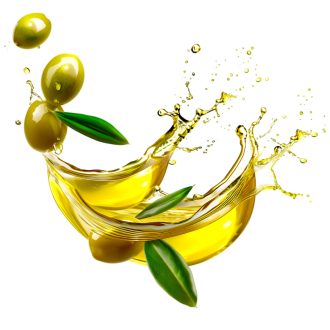- Empty cart.
- Continue Shopping
The Truth About Using Olive Oil for Skin
The Truth About Using Olive Oil for Skin 
Olive oil has long been praised for its health benefits, both in cooking and in skincare. Packed with antioxidants, vitamins, and essential fatty acids, it is often touted as a natural solution for soft, hydrated skin. But is olive oil really as beneficial for your skin as it seems? While olive oil has its advantages, there are also some potential downsides to consider. Here’s a breakdown of the truth about using olive oil for your skin, including its benefits, potential drawbacks, and how to use it effectively.
1. Rich in Antioxidants and Nutrients
- Why It’s Good: Olive oil is rich in antioxidants like vitamin E and polyphenols, which help protect the skin from environmental damage and free radicals. These antioxidants can slow down the aging process, reduce the appearance of fine lines, and support overall skin health. Additionally, the fatty acids in olive oil provide deep nourishment, making it especially effective for dry or mature skin.
- How to Use: Apply olive oil as a moisturizer after cleansing your skin. You can also use it as a carrier oil to blend with essential oils for added benefits.
2. Deep Hydration for Dry Skin
- Why It’s Good: Olive oil is an emollient, meaning it can penetrate deep into the skin to provide moisture and hydration. It’s particularly beneficial for dry, flaky skin, as it helps restore the skin’s natural moisture barrier and keeps skin soft and smooth.
- How to Use: Apply a small amount of olive oil to dry patches, elbows, and knees, or mix it with your regular moisturizer for an extra hydration boost.
3. Soothes Irritated Skin
- Why It’s Good: Olive oil contains oleic acid, which has anti-inflammatory properties that can soothe irritated or inflamed skin. It’s often used to calm conditions like eczema, psoriasis, or minor sunburns, helping to reduce redness and discomfort.
- How to Use: Apply olive oil directly to irritated areas or use it in a DIY soothing mask by mixing it with ingredients like oatmeal or honey.
4. Potential for Clogged Pores
- Why It Might Not Be Good: Olive oil is a heavy, occlusive oil, meaning it sits on top of the skin and creates a barrier. For some people, especially those with oily or acne-prone skin, this can lead to clogged pores and breakouts. Olive oil’s comedogenic rating is moderate (2 on a scale of 0-5), meaning it may cause pore blockages for certain skin types.
- What to Do Instead: If you have oily or acne-prone skin, it’s best to use lightweight, non-comedogenic oils like jojoba or grapeseed oil instead of olive oil.
5. May Disrupt Skin’s Natural Barrier
- Why It Might Not Be Good: Although olive oil is hydrating, some studies suggest that it may not be ideal for long-term use on sensitive or compromised skin. Oleic acid, while moisturizing, can disrupt the skin’s natural barrier, leading to increased sensitivity or dryness over time. This effect is more common when olive oil is used frequently on the face, especially for those with eczema or already sensitive skin.
- What to Do Instead: Use olive oil sparingly on your face, and if you notice increased irritation or dryness, switch to gentler oils like argan or rosehip oil, which are less likely to disrupt the skin barrier.
6. Not Ideal for Acne-Prone Skin
- Why It Might Not Be Good: Due to its occlusive nature, olive oil may exacerbate acne by trapping dirt and bacteria in the pores. Its thick consistency can make it difficult for the skin to breathe, potentially leading to clogged pores and breakouts. Acne-prone individuals should avoid using olive oil on the face to prevent worsening their condition.
- What to Do Instead: Opt for lighter oils with antibacterial properties, such as tea tree or hemp seed oil, which can help regulate sebum production and reduce acne without clogging pores.
7. Effective for Makeup Removal
- Why It’s Good: Olive oil is effective at dissolving makeup, including waterproof formulas, without stripping the skin. Its emollient properties break down dirt and makeup, making it a natural alternative to traditional makeup removers that may contain harsh chemicals.
- How to Use: Apply a small amount of olive oil to a cotton pad and gently wipe your face to remove makeup. Follow up with a gentle cleanser to remove any excess oil.
8. Great for Body Skincare
- Why It’s Good: Olive oil is an excellent option for body care, especially for dry or rough areas like elbows, knees, and feet. It’s highly moisturizing and can help repair cracked or dry skin. Additionally, olive oil works well as a bath oil or as part of a DIY body scrub to exfoliate and soften the skin.
- How to Use: Apply olive oil to damp skin after showering to lock in moisture, or mix it with sugar to create a hydrating body scrub.
9. Natural Anti-Aging Properties
- Why It’s Good: Olive oil is rich in squalene, a natural compound that helps keep the skin looking youthful and smooth. It can prevent the loss of moisture, reduce the appearance of wrinkles, and improve skin elasticity. Regular use may help delay signs of aging, especially when combined with a healthy skincare routine.
- How to Use: Use olive oil at night as a part of your anti-aging skincare routine. Apply a small amount to your face and neck to help keep skin hydrated and smooth.
Conclusion: Is Olive Oil Really Good for Your Skin?
Olive oil can be an excellent addition to your skincare routine if used correctly and for the right skin type. Its deep hydration, antioxidant-rich formula, and soothing properties make it beneficial for dry and irritated skin, especially on the body. However, olive oil may not be suitable for everyone—particularly those with oily, acne-prone, or sensitive skin. If you fall into these categories, it’s best to use lighter, non-comedogenic oils that provide hydration without the risk of clogging pores.
Interested in creating your own product line? Explore our private labeling options and bring your brand vision to life. Fill out our Form to get started.
Discover more about our services by visiting our website.

